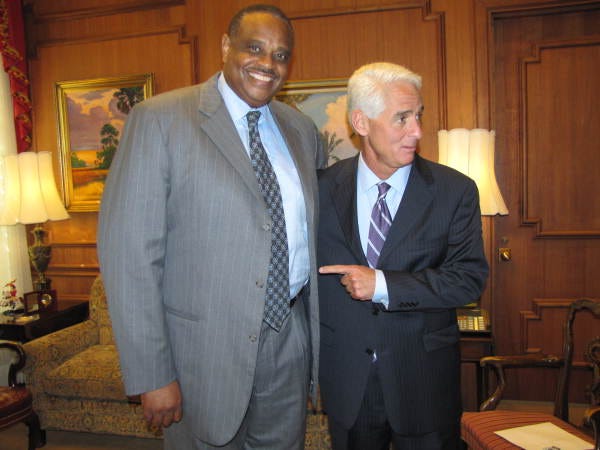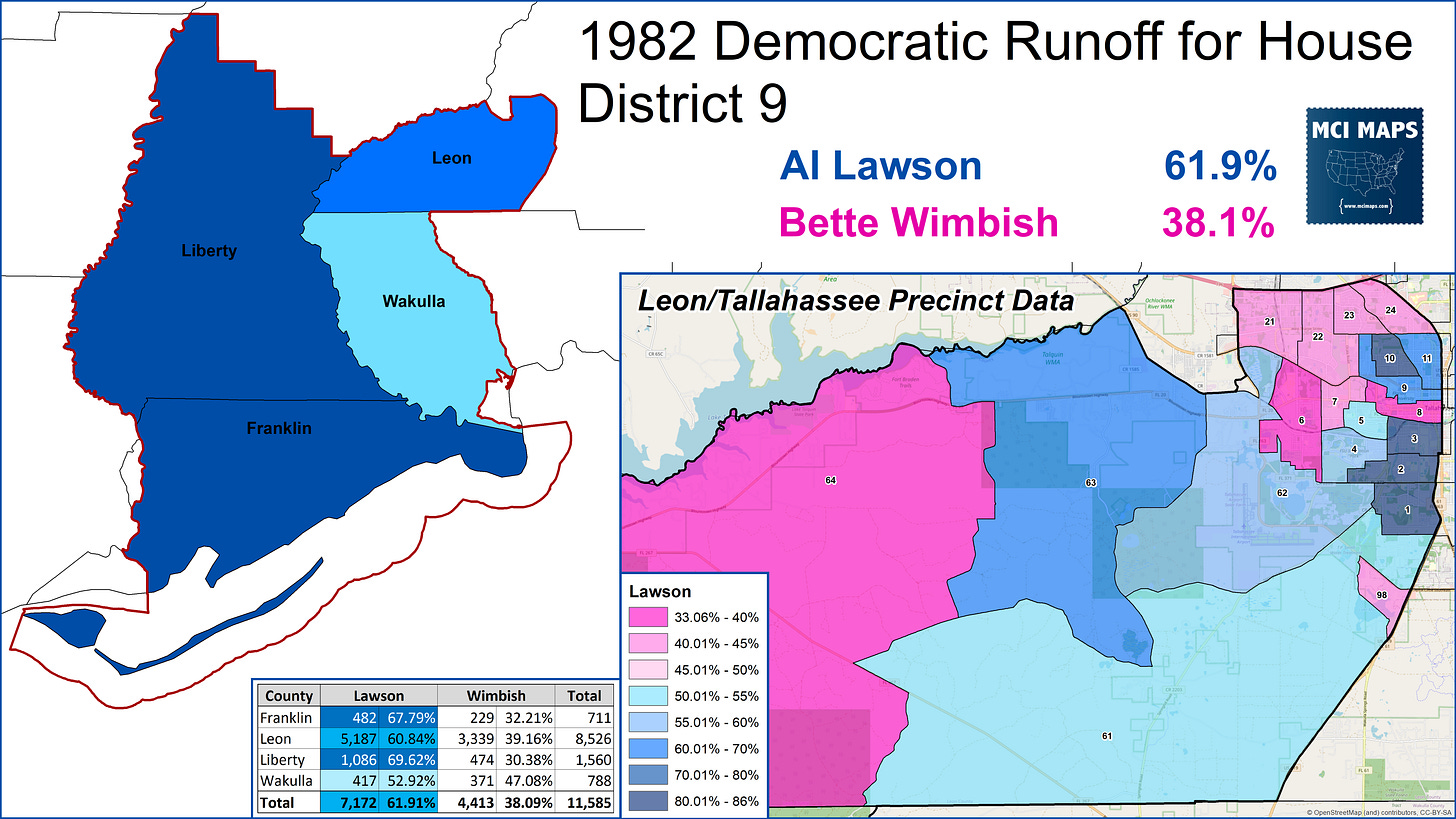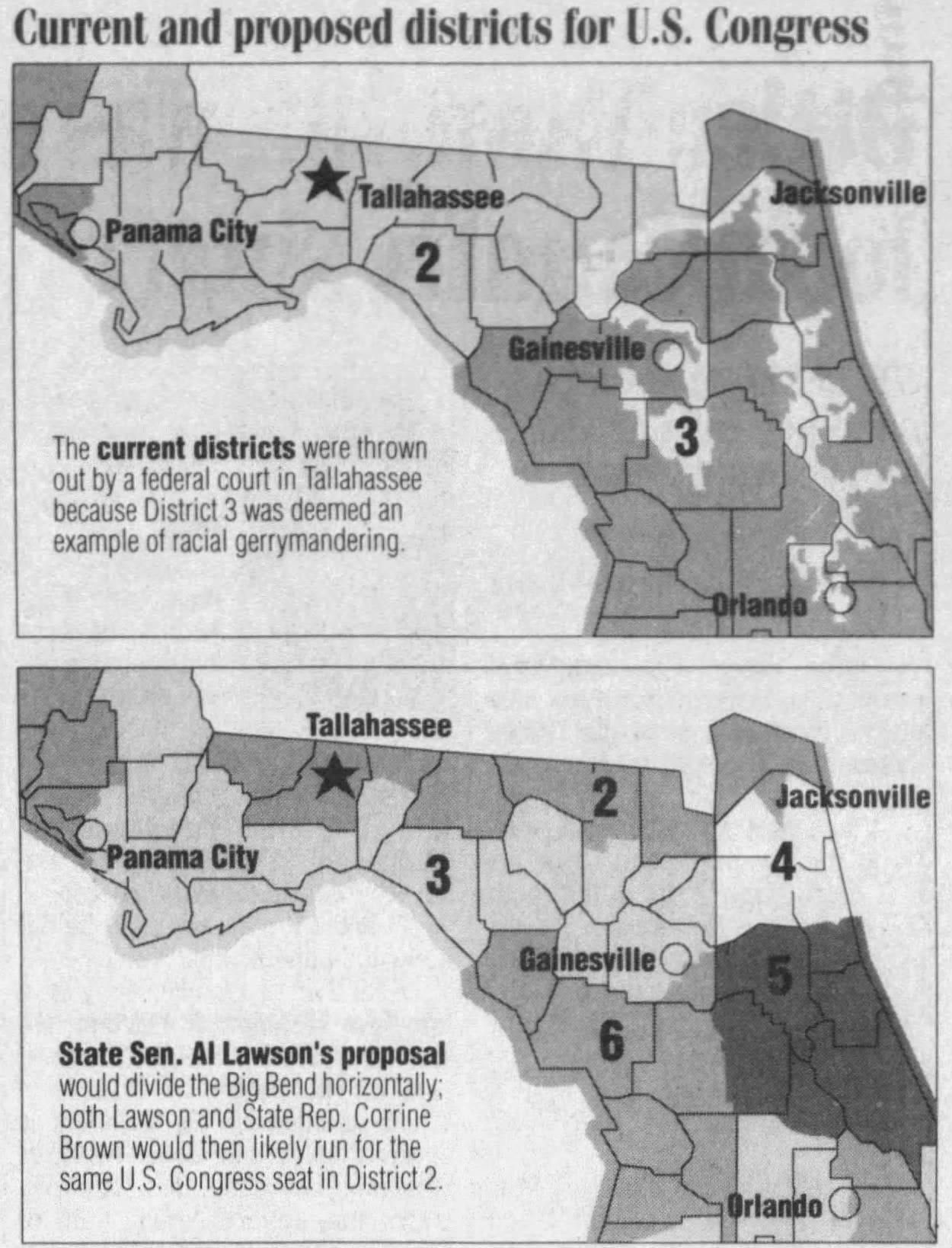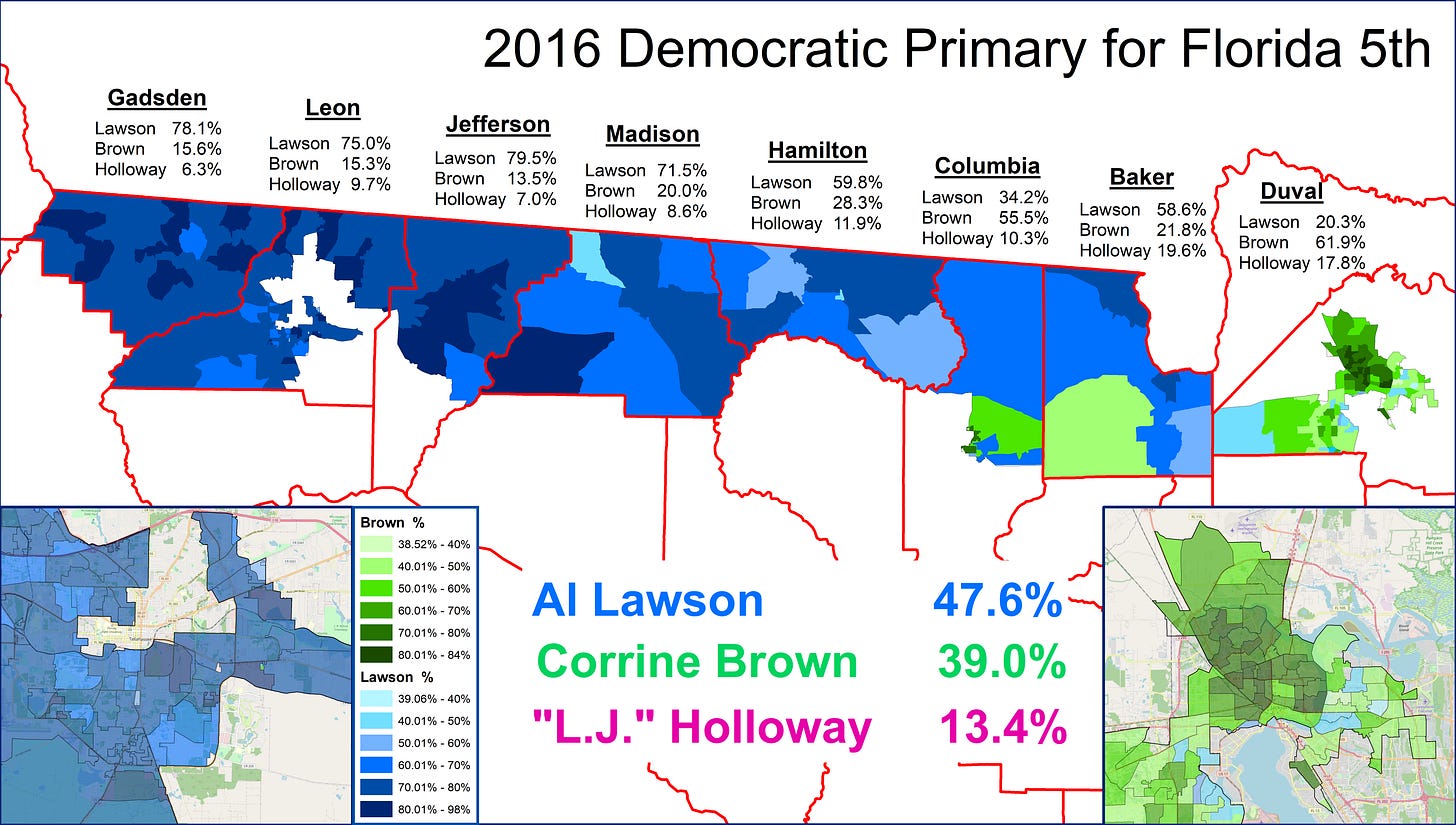Issue #37: The Elections of Al Lawson
First elected in 1982, the man has been a N FL trailblazer
In 2021, I decided I wanted to do a detailed career retrospective on Al Lawson, the Congressman for Florida’s 5th Congressional district. If you are not from North Florida, Lawson may seem like just another member of the Democratic caucus. However, for people in the Tallahassee area, Lawson is a legendary figure in politics. The Congressman began his electoral career in 1982, breaking many racial barriers in the region. The man has a building named after him at Florida A&M University. Standing at 7 feet tall, he is a recognizable figure wherever he goes.
With Florida’s redistricting saga dragging on, and Lawson’s 5th Congressional district under fire from Ron DeSantis, I sped up my timeline to get my Lawson retrospective out before the final lines are decided on.
Available to read here - this is a 5,400 WORD deep dive. I wanted to offer some highlights in this issue. However, I cannot stress enough that you should give the details a read.
Start in the State House
Lawson began his career in the state house in 1982. This marked the first year Florida used entirely single-member districts. However, the Democratic leaders in the legislature ignored African-American wishes for a majority-black seat that would cover Gadsden and southside Leon County. Instead, lawmakers cracked the black vote between two districts.
House District 9 was the best shot for African-Americans to make a play in - as the seat was open and was around 40% black in the democratic primary. The seat was still racially gerrymandered - linking the more diverse Leon County portion with rural, white voters. This was very much a shotgun marriage district.
African-American leaders were not deterred, and a major turnout push took place in the primary for HD9. Five Democrats filed, with a runoff expected between the top two. Al Lawson, who was a FAMU booster and worked in insurance, announced for the seat. Bette Wimbish, an African-American lawyer, also announced. Three white candidates filed - with real estate agent Rocky Bevis and former Leon Sheriff Ken Katsaris the strongest candidates. There was a worry Lawson and Wimbish would split the vote and neither would make the runoff. However, thanks to stellar turnout in Leon County, Wimbish and Lawson swept into the runoff on Leon’s backing.
Lawson was well positioned for the runoff. The primary showed him stronger than Wimbish with working-class whites and African-Americans overall. Wimbish was strongest with more middle-class liberal whites in Tallahassee. Lawson would win the runoff by dominating in the heavily black communities of southside and Frenchtown. Lawson also won in the outlying counties, but in many white, rural communities the turnout was way down from the runoff. Lawson’s win made him the first black state representative from the panhandle since reconstruction.
Lawson would face some election challenges over the decade, but always pulled off victories. He rapidly worked to bring home projects and funds to the community.
Lawson was in the state house through the 1990s, and was part of the debate over Congressional redistricting in 1992. Then in 1996, Corrine Brown’s 3rd district was struck down and a special redistricting session was ordered.
This session marked the first time Lawson and Allen Boyd, then a state Rep for the regions east of Tallahassee, would clash. Both had their eyes on reshaping North Florida to give them a path to DC. Lawson proposed an east-west district, similar to what we have today. The proposal had also come up during the 1992 process.
Lawson’s proposal did not get the support it needed. Boyd was chairman of the House rules committee and ensured a map came out that fixed Brown’s district, but also made tweaks to the 2nd district (which covered Tallahassee) to give him a good seat to run for. Boyd would go on to Congress while Lawson waited for the state senate to open up.
State Senator
Lawson would run for the open State Senate seat in 2000. This put him in a race with Janegale Boyd, a fellow state rep and sister-in-law to Congressman Boyd. Once Lawson and Boyd made it to the Democratic runoff, the nastiness of the campaign (already high in the primary) hit a fever pitch. Lawson and Boyd were subject to third party attacks from groups ranging from the NRA to trial lawyers. The attacks culminated in a shouting match between Boyd and Lawson at a press conference days before the runoff (seriously, read my article).
Lawson would win the runoff - propelled by huge margins in Leon and Gadsden counties.
After this runoff and then an easy general election win, Lawson never faced a challenge for his seat.
Runs for Congress
The relationship between the Boyd and Lawson camps remained old, however. In 2010, facing term limits, Lawson opted to challenge Boyd in the Democratic primary for the 2nd Congressional district. Boyd had long angered more liberal voters with his blue dog voting record. However, Boyd earned goodwill by backing Obamacare and the Stimulus bill. Lawson ran to the left of Boyd and almost pulled off a victory despite being heavily outspent.
The primary effort, which was followed by Boyd’s general election loss, hurt Lawson in the eyes of DC Democratic leaders. In truth, Boyd was likely doomed anyway, as the red wave swept out many longtime incumbents. It didn’t change the hard feelings directed at Lawson for challenging an incumbent.
The DC anger did not stop Lawson from making a run for the newly-redistricted 2nd district in 2012. Despite the DCCC giving support to State Rep Leonard Bembry, Lawson easily won the Democratic primary, relying on his strong name ID and support.
The general, however, would end in a Lawson loss. He did perform better than Obama, but not be nearly enough in the more populated Bay County; the home of GOP Congressman Steve Southerland.
After 2012, it was not clear Lawson had a chance at Congress. That was until the 2015 court-ordered redistricting. The resulting process (again, more details in the article) led to a 5th district that connected the African-American communities from Tallahassee to Jacksonville. Lawson would go on to defeat Corrine Brown in the 2016 primary.
Lawson has now won re-election twice, and sits in his 3rd term. Whether he has the opportunity to run for a 4th term remains to be seen. As we await new redistricting updates, give this article a read, and learn more about the long career of Al Lawson.














